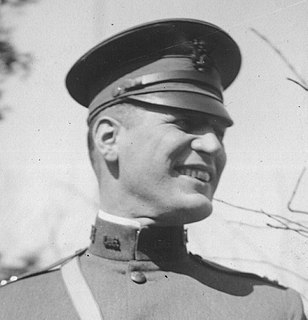A Quote by Robert Frost
For, dear me, why abandon a belief, Merely because it ceases to be true, Cling to it long enough, and not a doubt, It will turn true again, for so it goes.
Related Quotes
The blessed Paul argues that we are saved by faith, which he declares to be not from us but a gift from God. Thus there cannot possibly be true salvation where there is no true faith, and, since this faith is divinely enabled, it is without doubt bestowed by his free generosity. Where there is true belief through true faith, true salvation certainly accompanies it. Anyone who departs from true faith will not possess the grace of true salvation.
So long as knowledge goes beyond mere true belief, foreknowledge is implausible, since having and relying on relevant true beliefs is sufficient for inquiry. A stepping-stone version of prior true belief seems reasonable, though perhaps we should accept only an even weaker view: a stepping-stone version of roughly-accurate beliefs.
Two things have been bothering me for a long time. The first is the tendency of people in general - and that includes Christians - to "relativize" religion. Any religious belief is only "true for," so to speak - true for you or true for me or true for those people on the other side of the world. Second, I've been bothered by how poorly believers understand their own Story. They have bits and pieces, of course, but they're missing enough that they can easily become prey to ideas that sound spiritual, but end up being foolishness in the end.
Westley: Hear this now: I will always come for you. Buttercup: But how can you be sure? Westley: This is true love-you think this happens every day? Westley: I told you I would always come for you. Why didn't you wait for me? Buttercup: Well...you were dead. Westley: Death cannot stop true love. All it can do is delay it for a while. Buttercup: i will never doubt again. Westley: There will never be a need.
Religion becomes a matter of belief, and belief acts as a limitation on the mind; and the mind then is never free. But it is only in freedom that you can find out what is true, what is God, not through any belief; because your belief projects what you think God ought to be, what you think ought to be true. If you believe God is love, God is good, God is this or that, your very belief prevents you from understanding what is God, what is true.
Power, true power, comes from the belief in true things, and the willingness to stand behind that belief, even if the universe itself conspires to thwart your plans. Chaos may settle; flames may die; worlds may rise and fall. But true things will remain so, and will never fail to guide you to your goals.
The way I feel about every book is this: you don't finish it, you abandon it. All of my books have in some sense failed, otherwise I wouldn't write another one. If I wrote the perfect book, I wouldn't have to write again, and I wouldn't want to. That's not true for everyone, but it's true for me. I could walk away then. But so far I haven't managed to do it.
Maybe this is all a bit of a myth, a willful desire to give each place its own unique aura. But doesn't any collective belief eventually become a kind of truth? If enough people act as if something is true, isn't it indeed "true," not objectively, but in the sense that it will determine how they will behave? The myth of unique urban character and unique sensibilities in different cities exists because we want it to exist.
A woman ... all beautiful and accomplished will, while her hand and heart are undisposed of, turn the heads and set the circle in which she moves on fire. Let her marry, and what is the consequence? The madness ceases and all is quiet again. Why? Not because there is any diminution in the charms of the lady, but because there is an end of hope.
Pragmatism asks its usual question. "Grant an idea or belief to be true," it says, "what concrete difference will its being true make in anyone's actual life? How will the truth be realized? What experiences will be different from those which would obtain if the belief were false? What, in short, is the truth's cash-value in experiential terms?




































